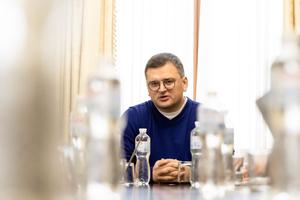Holy See Convenes UN Panel Urging Global Abolition of Surrogacy
The event was organized by the Holy See mission and co-sponsored by the Permanent Missions of Italy to the United Nations and the Sovereign Military Order of Malta.

The Holy See this week hosted a panel at the United Nations at which advocates highlighted the “exploitation and commodification” inherent in the surrogacy industry and stressed the need to regulate and eventually abolish surrogacy around the world.
The participants “highlighted the need for a universal ban to protect against exploitation and commodification,” the Permanent Mission of the Holy See to the United Nations said, with the panelists calling for “increased awareness and concrete steps at the U.N. level to abolish surrogacy and uphold human dignity.”
The event, titled “At What Price? Towards the Abolition of Surrogacy: Preventing the Exploitation and Commodification of Women and Children,” was held at the Palais des Nations at the U.N.’s Geneva headquarters.
The side event, held at the 56th Session of the United Nations Human Rights Council, was organized by the Holy See mission and co-sponsored by the Permanent Missions of Italy to the United Nations and the Sovereign Military Order of Malta.
Pope Francis earlier this year called surrogacy “deplorable” and called for a global ban on the exploitative practice of “so-called surrogate motherhood” in a speech to all of the world’s ambassadors.
“The path to peace calls for respect for life, for every human life, starting with the life of the unborn child in the mother’s womb, which cannot be suppressed or turned into an object of trafficking,” the Pope said in January.
A press release from the Holy See mission said the panel this week brought together “a wide range of participants” to discuss surrogacy, including a woman born through surrogacy who has since become a child rights activist, as well as an Italian government minister and other advocates.
It was moderated by Gabriella Gambino, the undersecretary of the Dicastery for Laity, Family, and Life.
Olivia Maurel, who was born in America through surrogacy and raised in France, told participants at the panel of the “severe emotional and psychological toll it took on her life,” according to the mission.
She argued that surrogacy “commodifies children and exploits women, violating international laws and children’s rights,” the release said.
Gambino, meanwhile, argued that surrogacy has resulted in “procreative tourism” around the globe. Italian Minister for Family, Natality, and Equal Opportunities Eugenia Roccella also argued that surrogacy regulations often fail to capture the complex ethical concerns regarding the exploitation of women and children.
This has resulted in “a vast international movement of individuals and groups from diverse backgrounds advocating for a global ban on surrogacy,” the Holy See mission said.
The mission held a similar event earlier this year at the 68th Session of the Commission on the Status of Women.
At that event Archbishop Gabriele Caccia, apostolic nuncio and permanent observer of the Holy See Mission to the U.N., argued that “children have rights and interests which must be respected, starting with the moral right to be created in an act of love.”
The archbishop at the time called for “an international prohibition on this abusive practice.”
- Keywords:
- holy see















